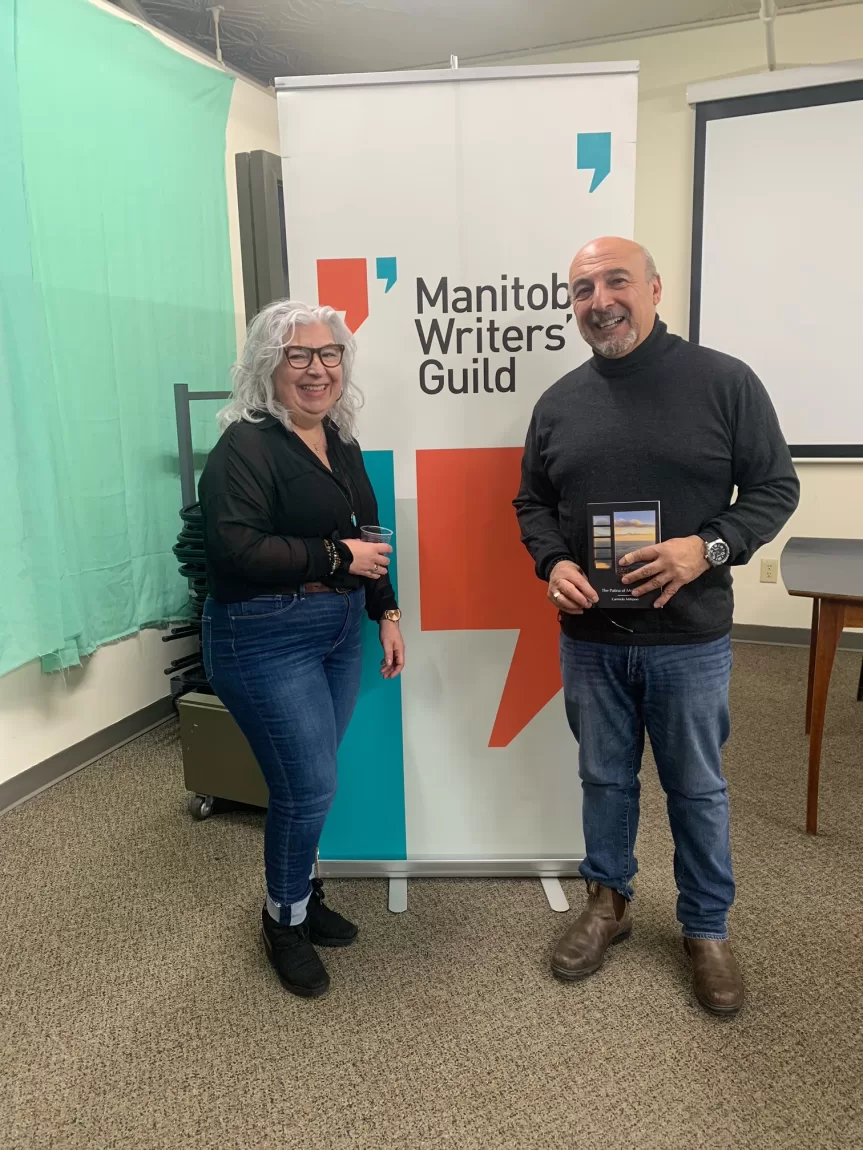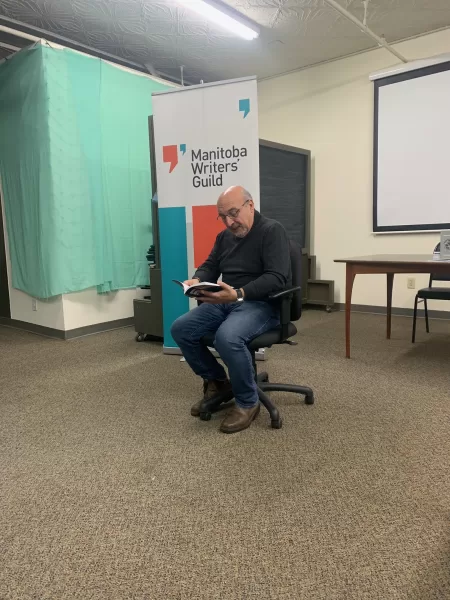Review of Launch of The Patina of Melancholy by Carmelo Militano
Eight enthusiastic friends, family members, and fans braved the elements on Sunday afternoon, November 5, to listen to Carmelo Militano talk about his writing in general and his newest novel, The Patina of Melancholy in particular.
Carmelo began with an extensive reading from his book, excerpts from the beginning to set up the background, a couple of excerpts from the central part to amplify our understanding of the two unnamed lovers, and the final four pages. His audience listened carefully, seeming to exhale as a chorus at certain points in the reading, breaking the silence with an occasional wow! or ooooh!
The Patina of Melancholy is an authentic exploration of a love affair. I don’t mean it’s autobiographical but rather that the author genuinely explores the possibilities, implausibilities, directions and misdirections of passion. And memory. When asked why the lovers behave as they do, he pondered and concluded “I don’t have an answer for that.” When he came to the end of his story, he unabashedly admitted that the ending was “…intuitive. I’m not even sure what the ending means.” By implication, he is making his exploration unique from every reader’s exploration insofar as each reader will take a somewhat different pathway through the meaning of the relationship of the lovers.



Carmelo is a writer of poetry, non-fiction, and fiction. His poetic mind was evident in the lyricism and rhythm of every prose description he read. And there were many. He took us to Tuscan towns and villages, to Lisbon, and to the hearts and bodies and minds of his lovers.
The robust applause at the end of Carmelo’s presentation was the sound of happy appreciation for a truly enjoyable reading. A glass of well-selected Italian wine concluded the launch in celebratory style.
Please join us next Sunday afternoon, from 2:00 – 3:30 in the Artspace Boardroom, 4th Floor, to meet Bill Massey, author of Of Poets and Pioneers, a moving story of a grandfather and his grandson, told through the integration of prose and poetry.

